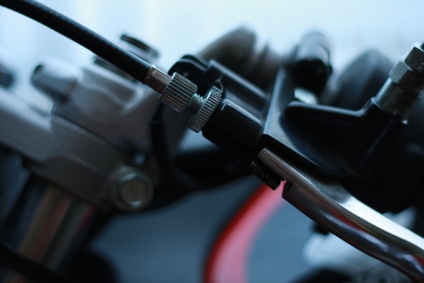
A car's clutch uses friction between the clutch plate and the wheels to allow drivers to shift gears. Because of this, a clutch will eventually wear down to the point of failure. Smooth shifting, avoiding riding the clutch and regular maintenance will extend the life of a clutch, although it's inevitable that the friction involved in a clutch's function will eventually wear it down to the point of failure, and may spawn different problems depending upon how the vehcile's clutch was used when it was driven.
A clutch that is slipping loses its ability to put the car into gear completely, and may feel as if the clutch is still partially engaged when it's completely released. This malfunction may be caused by oil or grease on the clutch plate, which is easily cleaned off at home, though is more often a problem with release systems malfunction, as with an improperly installed cable. Problems with the clutch cylinders, including blockage, or a broken flywheel may all cause a clutch to slip, all of which are issues most home mechanics may want to leave up to a shop to fix.
When the clutch pedal depresses without any resistance or with very little resistance, the clutch has lost pressure. In most cases, this is caused by failure of a clutch cylinder or a gasket on the clutch cylinder, leaking fluid. If the clutch is suddenly more difficult to depress, check for binding in the cable or a damaged release fork, while loss of hydraulic pressure may also make depressing the clutch more difficult. Bound cables and a loss of transmission fluid are simple to fix, though if they're a recurring problem, drivers may need a professional to diagnose what causes those symptoms.
Clutches that fail to release the input shaft when depressed all the way won't allow drivers to shift gears, or only allow for shifting with great difficulty. This malfunction could be caused by a stretched or broken cable, a worn pilot bearing or pivot ball or a worn release fork, all of which are moderately straightforward repairs. Failure of the clutch cylinders may also cause clutches to bind, though a complete transmission overhaul will be needed to fix failed cylinders.
Clutch noise is usually an indicator of a component about to fail. Although failing bearings and actuators are the problems most usually associated with clutch noise, noise could indicate problems with everything from the clutch disc and the input shaft to the flywheel or transmission mount. Inspect the entire clutch assembly, looking for unusually worn parts to identify the problem before the part fails, potentially damaging the clutch system further.